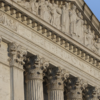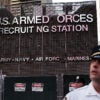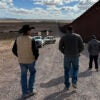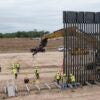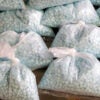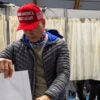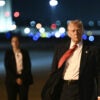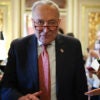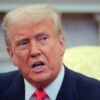The Commerce Department today revised down its estimate for second quarter gross domestic product from 2.4 percent to 1.6 percent. This is not a sign of a weakening economy but a weak economy last spring. The weakness was especially pronounced as the bulk of what growth did occur was due to a building of inventories and a temporary (and now apparently reversed) blip in home sales.
Most of the data since the second quarter ended—from industrial orders to labor markets to housing—has worsened further. What we are seeing is an economy that tried to recover last winter, slowed, and is now sliding steadily to stagnation. Not yet a recession, it is certainly the Obama slide.
The Daily Signal depends on the support of readers like you. Donate now
The great American jobs machine has stalled. Whether it revives anytime soon or continues to flounder is the 7-millions-jobs question. What is certain is that the economy should be steadily strengthening. The basic forces of growth and prosperity remain in place, much as they have always been. But something is holding the economy back. That something is Washington.
The key factor that always escapes the economic models—and is now missing from the economy—is confidence. The inherent, pervasive optimism that traditionally propels investment and saving, hiring, and extra effort is simply missing. The federal government spent enormous sums to spur the economy. The American people were never comfortable with the associated buildup in the national debt, but they were willing to give the new President and his Congress the benefit of the doubt. They hoped. They were misled. It failed. Now the hope has been replaced by worry, and Washington continues to give reason to worry.
In addition to a big stimulus program, Obama ran on the idea of heaping new taxes on upper-income taxpayers, including those small businesses he says (correctly) are critical to the recovery. Congress did nothing. And so as 2011 creeps over the horizon, so too does a massive tax hike on middle-class families, upper-income workers, small businesses, savers, family farms, and on an on. Having done nothing about this tax cut for the last nearly two years, all these prospective tax hike victims can only assume that Congress intends to hit them with the full tax hike from allowing the 2001 and 2003 tax relief to expire.
The tax hike itself is bad enough, falling as it will on a stuttering economy. But the bigger issue is still confidence. There is no economic policy rationale to justify raising taxes on a weak economy. None. Yet Obama and Congress are so desperate for revenues to pay for their massive spending surge that they’re willing to raise taxes. Yes, the tax hike is foolish and unjustifiable, but far more debilitating to the confidence the economy needs to grow is what Congress’s tax policies say about its willingness to accept sustained high levels of joblessness—or, alternatively, what it says about President Obama’s understanding of how our economy really functions and what it takes to prosper. No wonder confidence is lagging. No wonder the economy is flagging. The wonder is that the President appears dead set against changing course—even in the face of the Obama slide.
